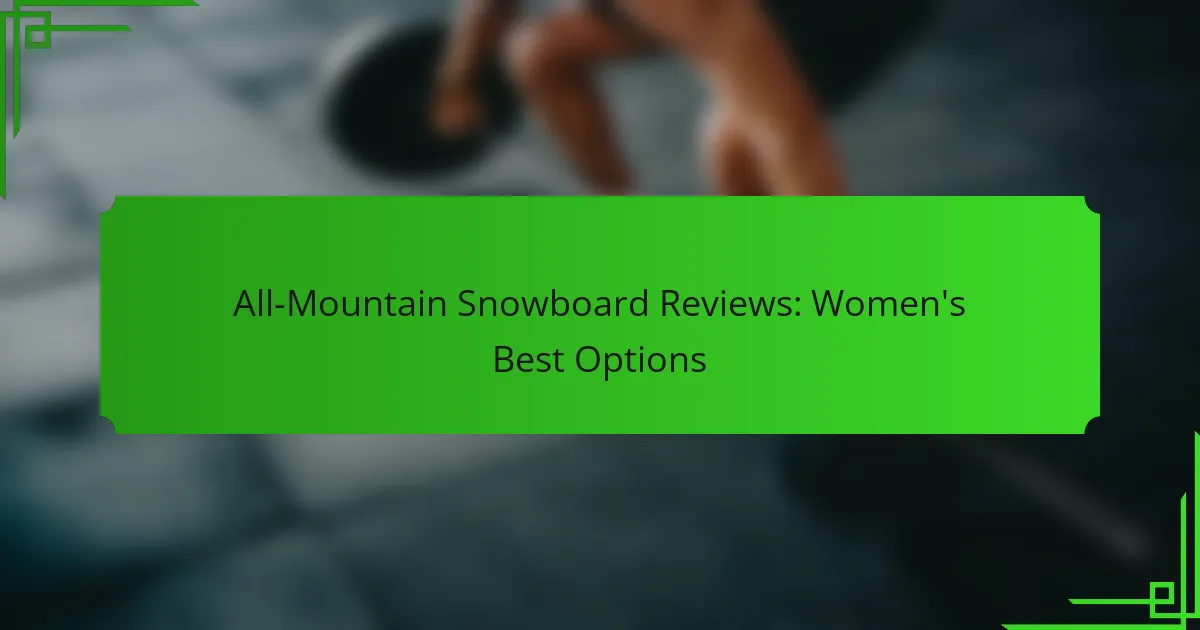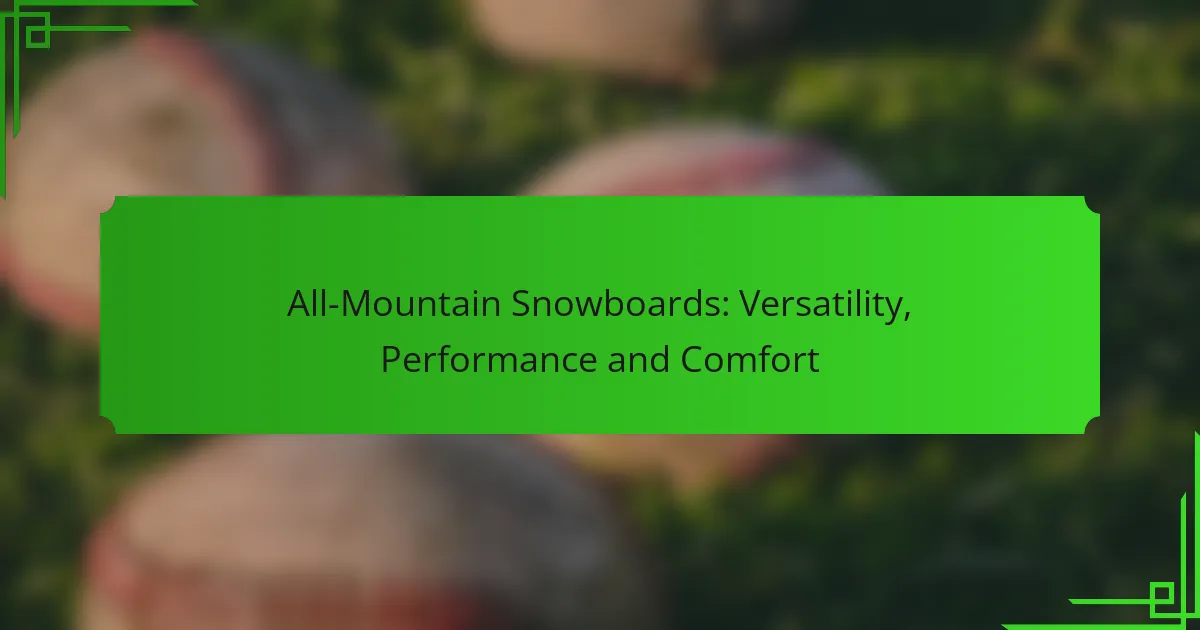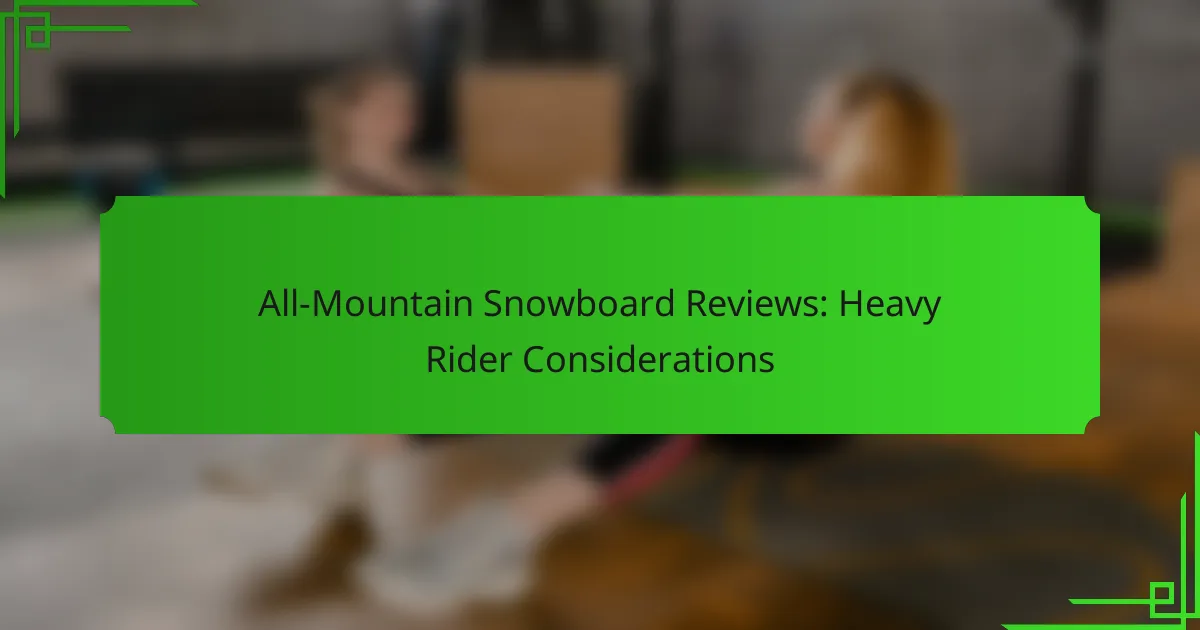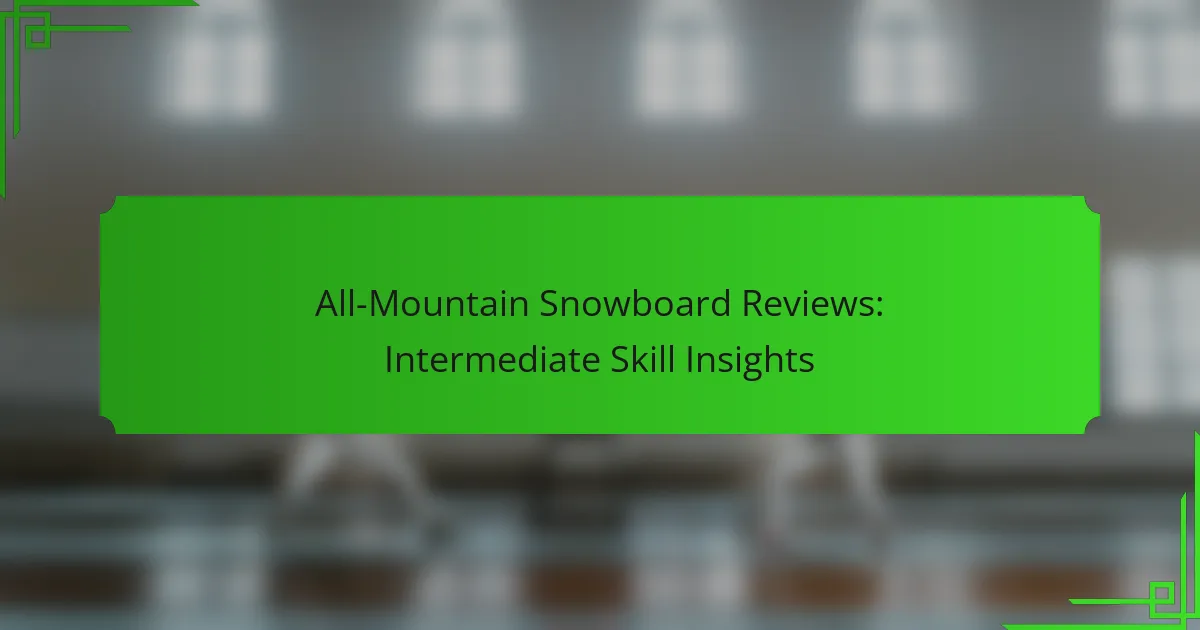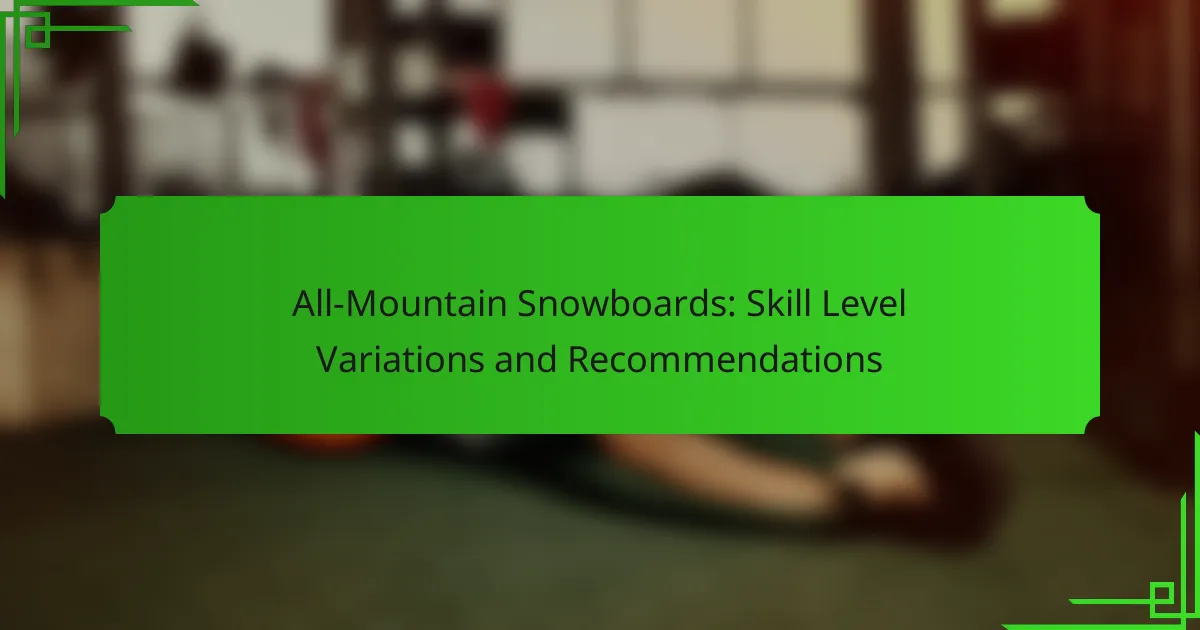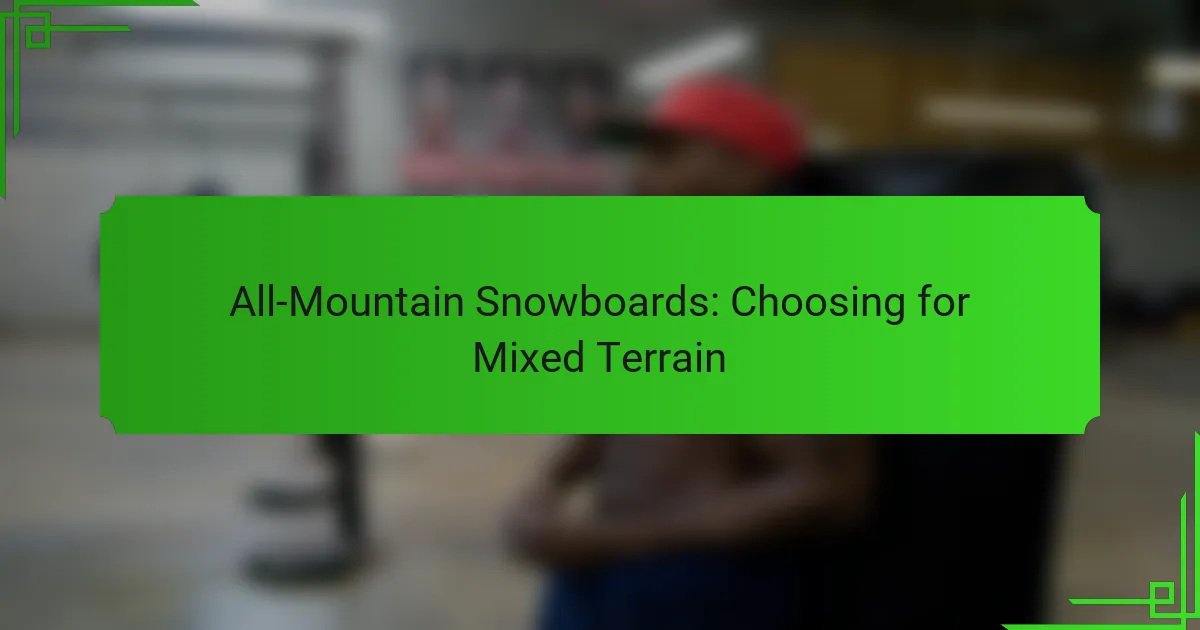What Are the Best All-Mountain Snowboards for 2023?
The best all-mountain snowboards for 2023 combine versatility, performance, and comfort across various terrains. Key models to consider include the Burton Custom Flying V, Lib Tech T.Rice Pro, Salomon Assassin, Ride Warpig, and K2 Raygun, each offering unique features suited for different riding styles.
Burton Custom Flying V
The Burton Custom Flying V is a top choice for riders seeking a blend of freestyle and all-mountain capabilities. Its hybrid profile combines camber and rocker, providing excellent float in powder while maintaining edge control on groomed runs.
This snowboard is known for its versatility, making it suitable for various skill levels. Riders appreciate its responsive feel and smooth transitions, which enhance performance in diverse conditions.
Lib Tech T.Rice Pro
The Lib Tech T.Rice Pro is designed for advanced riders who want a high-performance all-mountain board. Its C2X profile features a mix of rocker and camber, allowing for precise turns and stability at high speeds.
This model is particularly effective in powder and challenging terrain, thanks to its aggressive sidecut and lightweight construction. Riders often highlight its durability and the eco-friendly materials used in its design.
Salomon Assassin
The Salomon Assassin is a versatile all-mountain snowboard that excels in both park and backcountry settings. Its Rock Out Camber profile provides a balanced ride, offering pop for jumps while ensuring stability on varied terrain.
This board is well-regarded for its forgiving nature, making it a great option for intermediate riders looking to progress. The Assassin’s construction includes a mix of materials that enhance durability without sacrificing performance.
Ride Warpig
The Ride Warpig is a unique all-mountain snowboard that stands out for its short, wide design, which enhances maneuverability. This board is perfect for riders who enjoy quick turns and playful riding in various conditions.
Its twin shape and rocker profile make it ideal for freestyle enthusiasts, while still performing well on groomed runs. Riders appreciate the Warpig’s ability to float in powder and its stability at speed.
K2 Raygun
The K2 Raygun is an excellent entry-level all-mountain snowboard that offers great value for beginners. Its directional shape and rocker profile provide a forgiving ride, making it easier for new riders to learn and progress.
This board is designed for versatility, allowing riders to explore different terrains without feeling limited. The Raygun’s construction focuses on durability and ease of use, making it a reliable choice for those just starting their snowboarding journey.
How to Choose an All-Mountain Snowboard?
Choosing an all-mountain snowboard involves assessing your skill level, understanding board flex, and evaluating the terrain versatility you need. These factors will help you select a board that enhances your riding experience across various conditions and terrains.
Consider your skill level
Your skill level significantly influences the type of all-mountain snowboard you should choose. Beginners typically benefit from softer, more forgiving boards that offer easier maneuverability, while advanced riders may prefer stiffer boards that provide better control at high speeds.
As a general guideline, if you’re just starting, look for boards labeled as beginner-friendly. Intermediate riders can opt for all-mountain boards that balance flexibility and stability, while experts might seek high-performance options that excel in challenging conditions.
Evaluate board flex
Board flex refers to how much a snowboard bends under pressure, affecting its responsiveness and stability. Softer flex boards are easier to turn and are ideal for beginners or those who enjoy a playful ride, while stiffer boards provide more stability at high speeds and are better suited for advanced riders.
When evaluating flex, consider your riding style. If you prefer freestyle or park riding, a softer flex may enhance your ability to perform tricks. Conversely, if you enjoy carving on groomed runs or tackling powder, a stiffer board will offer the support you need.
Assess terrain versatility
All-mountain snowboards are designed to perform well across various terrains, including groomed runs, powder, and park features. When assessing versatility, consider the types of conditions you typically ride in and choose a board that can handle them effectively.
Look for features such as a directional shape for better performance in powder or a twin-tip design for park riding. Additionally, consider the board’s width; wider boards can provide better floatation in deep snow, while narrower boards are often more agile on groomed trails.
What Are the Key Features of All-Mountain Snowboards?
All-mountain snowboards are designed to perform well across various terrains and conditions, making them versatile choices for riders. Key features include directional shape, camber profile, and sidecut radius, which all influence how the board handles on snow.
Directional shape
The directional shape of a snowboard means it is designed to be ridden primarily in one direction, which enhances stability and control. This shape typically features a longer nose and a shorter tail, allowing for better float in powder and improved performance on groomed runs.
When selecting a snowboard with a directional shape, consider your riding style. If you enjoy carving and exploring varied terrains, this shape can provide the edge you need. However, it may not be as effective for tricks or riding switch.
Camber profile
The camber profile refers to the curvature of the snowboard when viewed from the side. Traditional camber offers a raised center with contact points at the tip and tail, providing excellent edge hold and pop for jumps. Conversely, rocker profiles, which curve upwards at the ends, enhance float in powder.
For all-mountain versatility, many boards feature a hybrid camber profile, combining both camber and rocker. This design allows for a balance of stability and maneuverability, making it suitable for various conditions.
Sidecut radius
The sidecut radius is the measurement of the curve along the edge of the snowboard. A smaller radius allows for tighter turns, while a larger radius is better for high-speed stability and long turns. All-mountain boards typically have a medium sidecut radius, offering a good compromise for different riding styles.
When choosing a snowboard, consider how you plan to ride. If you prefer quick, agile turns in the trees or on moguls, look for a board with a smaller sidecut radius. For open slopes and speed, a larger radius will provide better performance.
What Are the Price Ranges for All-Mountain Snowboards?
All-mountain snowboards typically range in price from under $400 to over $800. Understanding these price brackets can help you choose a board that fits your budget and performance needs.
Entry-level boards under $400
Entry-level all-mountain snowboards are designed for beginners or casual riders. These boards often feature softer flex, making them easier to control and maneuver. Brands like Burton and K2 offer solid options in this price range, which usually includes basic features without advanced technology.
When shopping for entry-level boards, look for models that provide good stability and a forgiving ride. These boards are often priced between $300 and $400, making them accessible for those new to the sport.
Mid-range boards $400-$800
Mid-range all-mountain snowboards cater to intermediate riders who seek better performance and durability. Priced between $400 and $800, these boards often incorporate improved materials and technology, offering a balance of flexibility and responsiveness.
In this range, you can find boards that perform well in various conditions, from powder to groomed runs. Brands like Ride and Salomon provide excellent choices, often featuring enhanced edge control and stability for more aggressive riding.
Premium boards over $800
Premium all-mountain snowboards, priced over $800, are aimed at advanced riders who demand top-tier performance and features. These boards typically utilize high-end materials, advanced construction techniques, and cutting-edge technology to enhance speed, control, and durability.
Expect to find boards from brands like Lib Tech and Jones that excel in challenging conditions. While the investment is significant, the performance benefits can be substantial, making these boards suitable for serious enthusiasts and professionals.
What Are the Top Brands for All-Mountain Snowboards?
The top brands for all-mountain snowboards include industry leaders known for their quality, performance, and innovation. Brands like Burton, Lib Tech, and K2 consistently rank high among riders for their versatile designs that cater to various skill levels and riding styles.
Burton
Burton is a pioneer in the snowboard industry, recognized for its high-quality all-mountain boards that suit a wide range of riders. Their boards often feature advanced technology, such as the Channel system for customizable binding placement and various flex options to enhance performance on different terrains.
When choosing a Burton all-mountain snowboard, consider factors like your skill level and preferred riding style. For instance, the Burton Custom is a popular choice for its versatility, while the Burton Flight Attendant is favored for powder days. Both models provide excellent stability and control.
To ensure you select the right Burton board, check the size chart and recommended weight ranges. Proper sizing is crucial for maximizing performance and comfort on the slopes. Additionally, consider investing in Burton bindings, which are designed to work seamlessly with their boards for an optimal riding experience.

